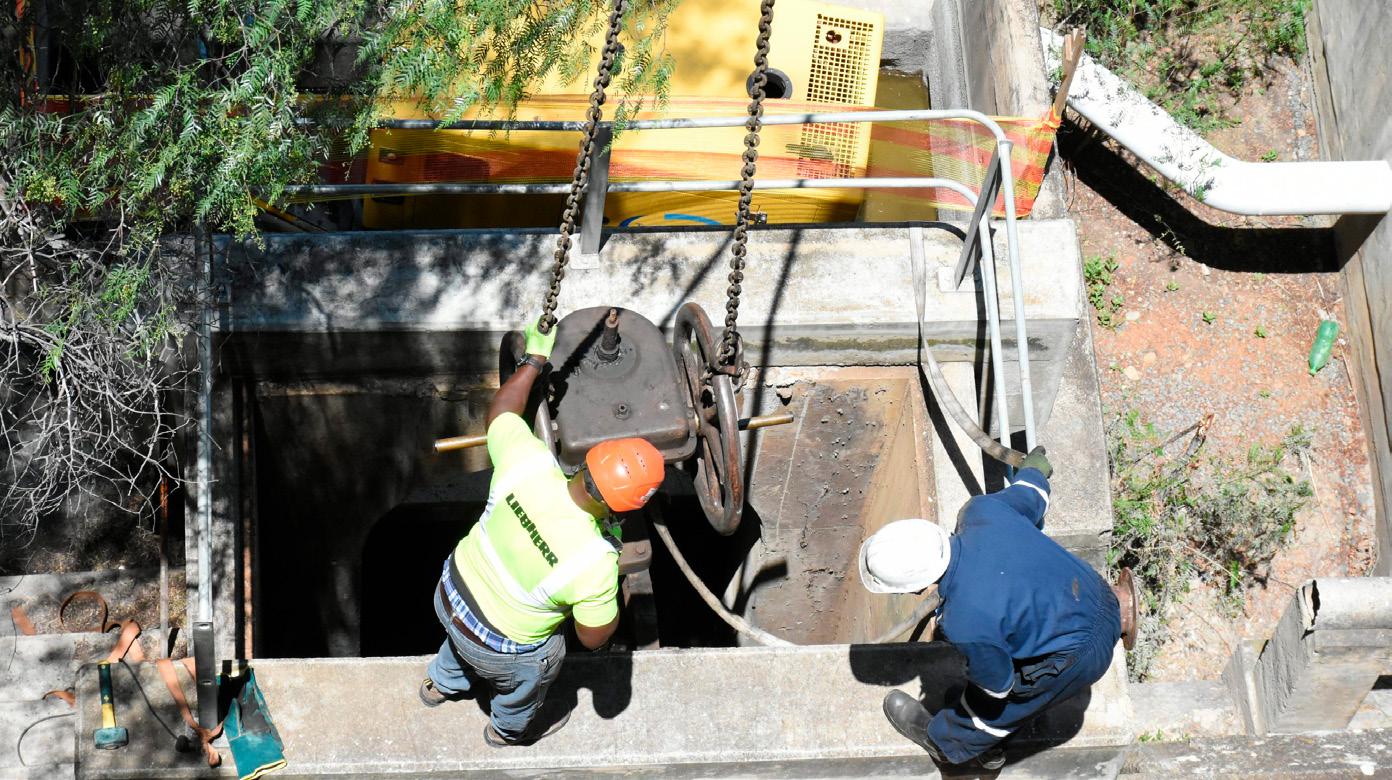
5 minute read
THE MUNICIPAL INFRASTRUCTURE SUPPORT INDABA RE-ASSERTS THAT INFRASTRUCTURE PROVISION IS CRITICAL TO SOCIO-ECONOMIC DEVELOPMENT
The Municipal Infrastructure Indaba hosted by the Minister of Cooperative Governance and Traditional Affairs (CoGTA), Ms Thembi Nkadimeng, concluded with a promise and commitment to support municipalities to ensure effective functioning infrastructure that benefits communities.
The Indaba, held under the banner of the Municipal Infrastructure Support Agent (MISA) was held in Kempton Park on the 18th of August 2023.
Minister Nkadimeng emphasised that Functional Infrastructure was a bedrock of vibrant communities and economic prosperity.
Stakeholders and role players who shared their ideas and views at the Indaba included Deputy Ministers Parks Tau and Prince Zolile Burns-Ncamashe; MECs from Provinces; the South African Local Government Association (SALGA); representatives from different provinces and municipalities; the Development Bank of Southern Africa (DBSA); the University of Cape Town and the Council for the Built Environment, among others.
MISA Celebrates 10th Anniversary
Reflecting on the past decade of MISA, the Indaba emphasised the District Development Model (DDM) approach to unlocking catalytic projects and resources to ensure the development of communities.
Minister Nkadimeng reflected on the role of MISA since its establishment in 2012. She congratulated MISA for having been at the forefront of working with municipalities to address the acute capacity challenges they are facing. The Minister further emphasised the importance of agility and pragmatism in addressing local government challenges, especially as they relate to poor or no infrastructure.
She indicated the need for policies to be enablers rather than obstacles in the pursuit of progress. The Minister challenged officials to recognize that the impact of infrastructure delivery is magnified when women are its primary beneficiaries, highlighting the broader societal implications of the work being done.
Even though the last decade was characterised by collaboration, capacitybuilding, and responsive governance, the Indaba called for more partnerships to work towards ensuring socioeconomic development.
MISA was established in 2012 through a Presidential Proclamation 29 of 2012, which was gazetted on the 11 May 2012, in terms of section 7(A) of the Public Service Act,1994.
MISA is mandated to:
• Support municipalities to conduct effective infrastructure planning to achieve sustainable service delivery;
• Support and assist municipalities with the implementation of infrastructure projects as determined by the municipal Integrated Development Plans (IDPs);
• Support and assist municipalities with the operation and maintenance of municipal infrastructure;
• Build the capacity of municipalities to undertake effective planning, delivery, operations and management of municipal infrastructure.
Building Technical Capacity for Municipalities
Participants agreed that whilst MISA’s core mandate is on building and providing technical capacity to municipalities, the reality is that most municipalities require a holistic intervention, to include issues of governance, infrastructure procurement and financial management.
as they relate to poor or no infrastructure.
A recurring theme echoed by numerous speakers throughout the Indaba was the pressing issue of infrastructure that enhances community development and economic growth.
While there has been considerable emphasis on building new infrastructure units, the poor or lack of infrastructure maintenance and preserving existing assets has emerged as a critical concern. The broader sentiment underscored the importance of a holistic approach to infrastructure development, one that encompasses both expansion and maintenance to ensure the longevity and effectiveness of investments.
Other speakers drew attention to the interconnectedness of challenges faced by municipalities and how these can often be traced back to weaknesses in the implementation of the key legislations to ensure full provincial and national support to municipalities as per section 154 of the Constitution.
The Indaba acknowledged that South Africa’s infrastructure is still skewed as urban areas continue receiving priority over rural areas. This calls for a shift to also include rural areas to ensure socioeconomic development which is key in reducing migration to cities and also alleviating inequality and poverty.
The Indaba was indeed an opportunity to not only reflect on the decade of MISA’s excellence but was also a platform to reflect on the evolving landscape of municipal infrastructure development in South Africa.
Better infrastructure for a better life
“Effective and efficient infrastructure is pivotal in alleviating poverty in South Africa. While our nation boasts a robust core infrastructure network, ensuring equitable distribution remains a challenge. This Indaba marks our commitment to bridging this gap and revitalizing communities through strategic infrastructure development and maintenance,” Minister Nkadimeng said.
The second pillar of MISA’s mandate therefore becomes critical; to create conditions for decent living by consistently delivering municipal services to the right quality and standard. This includes planning for and delivery of infrastructure and amenities, maintenance and upkeep, including the budgeting to do this. Ensure no failures in services and where there are, restore with urgency.

This then requires that MISA also monitor and analyse the extent and condition of existing municipal infrastructure, and proactively support and intervene where problems are acute. The agent will also assist in developing municipal infrastructure procurement processes and capacity as well as ensuring that national norms are met in the maintenance of infrastructure. Through its monitoring, MISA will also proactively support and intervene where these are not being met.


The Indaba concluded with a clarion call for all stakeholders and role players to embrace collaboration, leverage synergies, and adopt a comprehensive approach to infrastructure evelopment. MISA was also called upon to forge ahead with a formal relationship with Traditional Leaders through the National House of Traditional and Khoi-San Leaders (NHTKL), in order to close the visible gaps in infrastructure within the institution of traditional leadership.
Participants from the Indaba left inspired and invigorated to collectively shape a future marked by resilient, inclusive, and sustainable communities.










